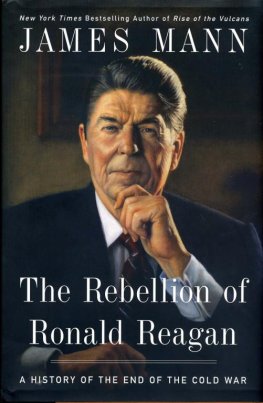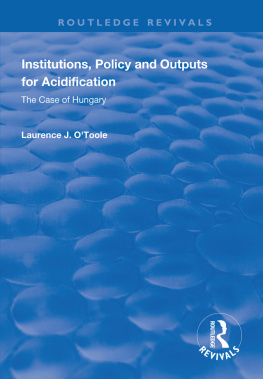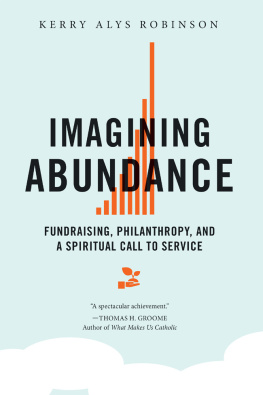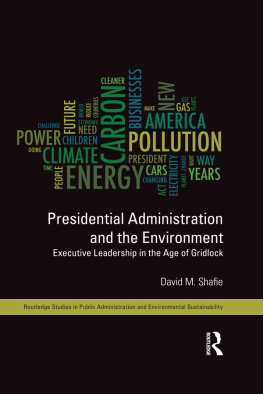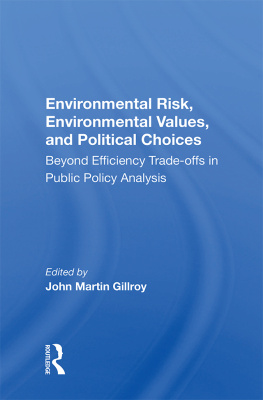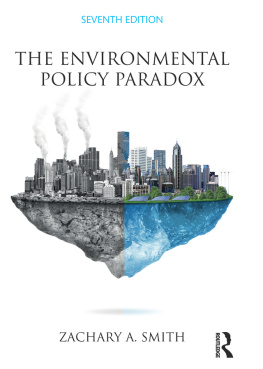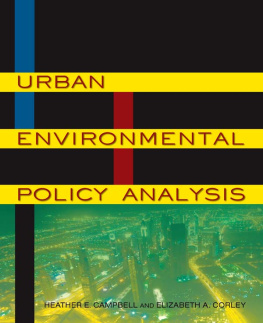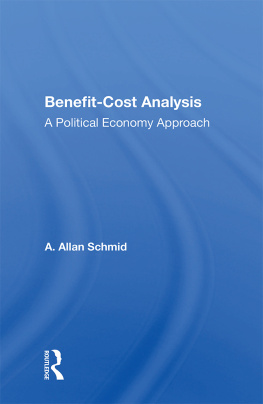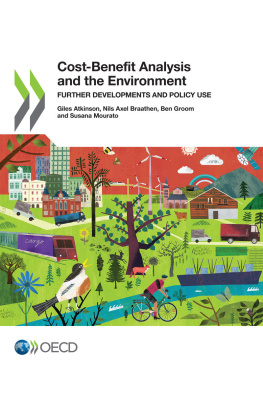1984 The University of North Carolina Press
All rights reserved
Manufactured in the United States of America
Library of Congress Cataloging in Publication Data
Main entry under title:
Environmental policy under Reagans Executive order.
Bibliography: p.
1. Environmental policyUnited StatesCost effectivenessAddresses, essays, lectures. 2. United StatesPolitics and government1981 Addresses, essays, lectures. I. Smith, V. Kerry (Vincent Kerry), 1945
HC110.E5E49878 1984 363.70560973 83-23397
ISBN 0-8078-1600-0
PREFACE
WHEN the Reagan administration came into power, it had a strong popular mandate to change the role of government in the private affairs of households and firms. Regulatory reform was a prominent component of its platform. Within weeks after assuming the presidency, Ronald Reagan issued Executive Order No. 12291 requiring a benefit-cost analysis for all new major regulations. Although this order can be considered to be the culmination of the efforts of several administrations attempts to control the regulatory burden that government has imposed on the private sector, it marks the first time that a formal benefit-cost requirement has been considered an integral part of the evaluative process for regulations. The orders general requirements given in Section 2 specify:
In promulgating new regulations, reviewing existing regulations, and developing legislative proposals concerning regulation, all agencies, to the extent permitted by law, shall adhere to the following requirements:
(a) Administrative decisions shall be based on adequate information concerning the need for and consequences of proposed government action;
(b) Regulatory action shall not be undertaken unless the potential benefits to society for the regulation outweigh the potential costs to society;
(c) Regulatory objectives shall be chosen to maximize the net benefits to society;
(d) Among alternative approaches to any given regulatory objective, the alternative involving the least net cost to society shall be chosen; and
(e) Agencies shall set regulatory priorities with the aim of maximizing the aggregate net benefits to society, taking into account the condition of the particular industries affected by regulations, the condition of the national economy, and other regulatory actions contemplated for the future.
The purpose of this volume is to take stock of the effects of Executive Order 12291 on environmental policy making. After more than two years of experience with the order, it is possible to investigate how it has affected the character of environmental regulations and policy in general. In the process, we also realize a second objective.
Executive Order 12291 establishes a set of goals and calls for the use of benefit-cost analysis as if this analysis consisted of completely accepted procedures that could be used together with research results on both the benefits of realizing specified changes in environmental quality and the costs of achieving these changes. Neither of these maintained assumptions is accurate. Consequently, it is possible to use our appraisal of how the Environmental Protection Agency responded to the order to identify the limitations of conventional benefit-cost analysis and to begin the process of defining the research needed if a benefit-cost requirement is to be maintained as an integral part of the design and implementation of environmental regulations.
Research for this volume was initiated with a Conference on Executive Order 12291 and Environmental Policy Making at the University of North Carolina at Chapel Hill. Preliminary drafts of several of the papers published in this volume were presented at that conference. Others were initiated after the conference. Support for the conference and my research activities was provided by the Alfred P. Sloan Foundation through a grant to the University of North Carolina at Chapel Hill. I am especially grateful to the foundation and its president, Albert Rees, for their support and patience in seeing this work through to completion.
This effort was truly collaborative. All of the authors agreed to strict deadlines and met them. It has been a genuine pleasure to work with all of them. A number of individuals also contributed to this research activity both through participation in the conference and in commenting on the papers. Special thanks should be given to John Akin, Allen Basala, William Desvousges, Wesley Magat, David Moreau, and James Seagraves. Thanks are also due Maynard Hufschmidt and an anonymous reader for their thoughtful reviews of an earlier draft of this manuscript.
Mary Pettis helped to organize the conference, handling both the logistical details of the meeting and the administrative aspects of my research associated with the project. Sue Piontek has helped me to pull the work together in this final product and assured its timely completion. Whitney Eckler assured that deadlines would be met by providing long hours in proofing the manuscript. Special acknowledgment is also due Gwen Duffey and all the staff of the University of North Carolina Press for their excellent and constructive handling of the manuscript. I am sincerely grateful for the help of all those mentioned and those I may have inadvertently omitted.
Finally, but certainly not last in my appreciation, are my wife, Pauline, and children, Tim and Shelley, whose support and patience are essential to all that I do.
| V. Kerry Smith |
| December 1983 | Nashville, Tennessee |


